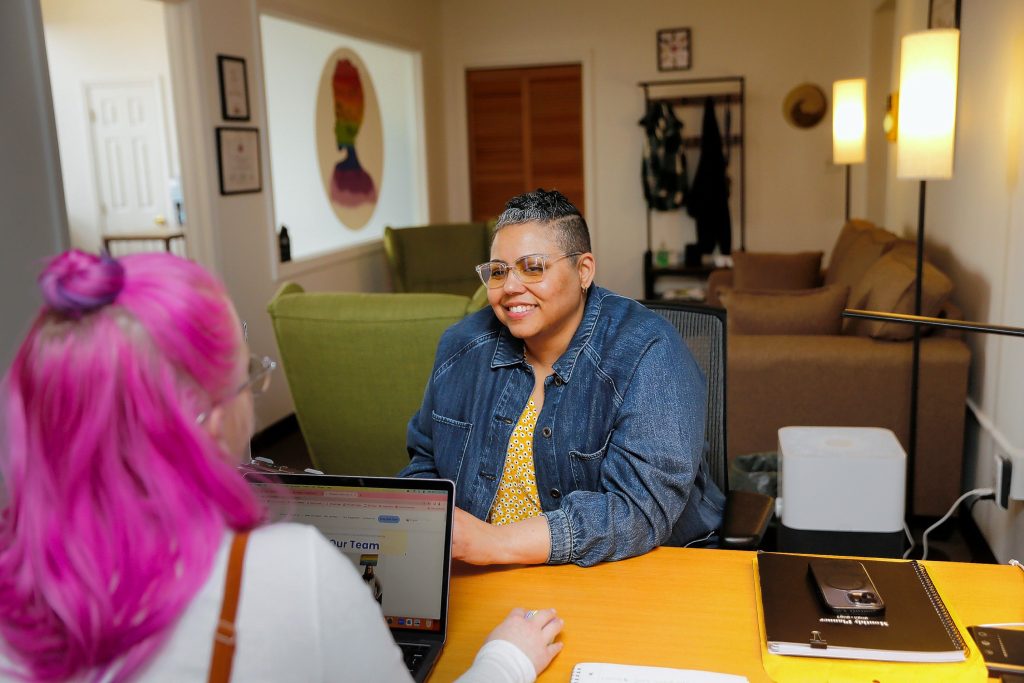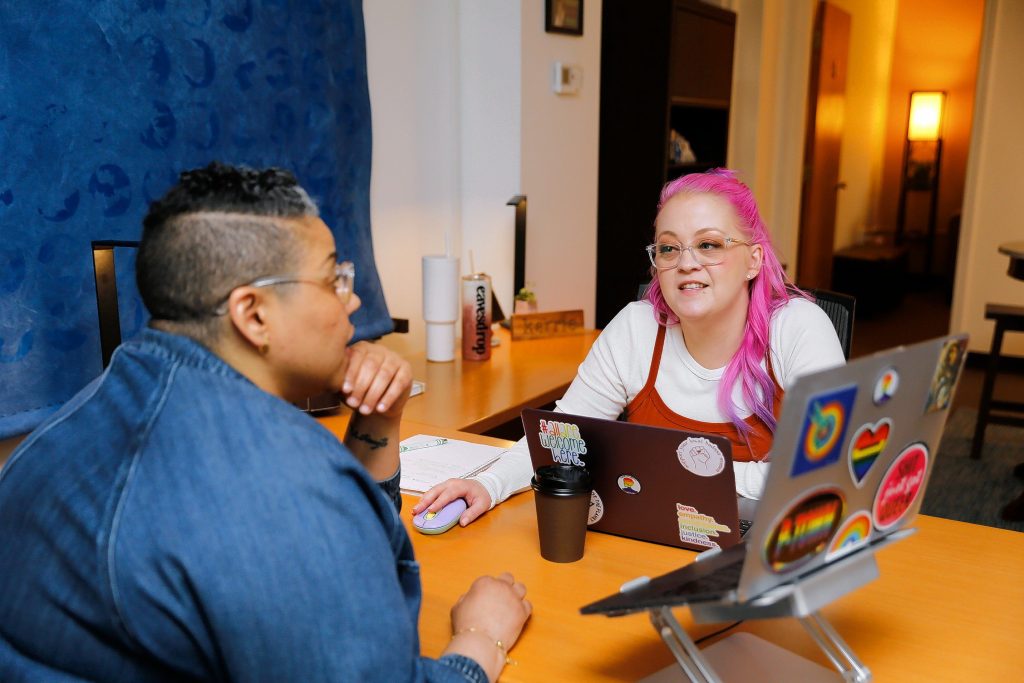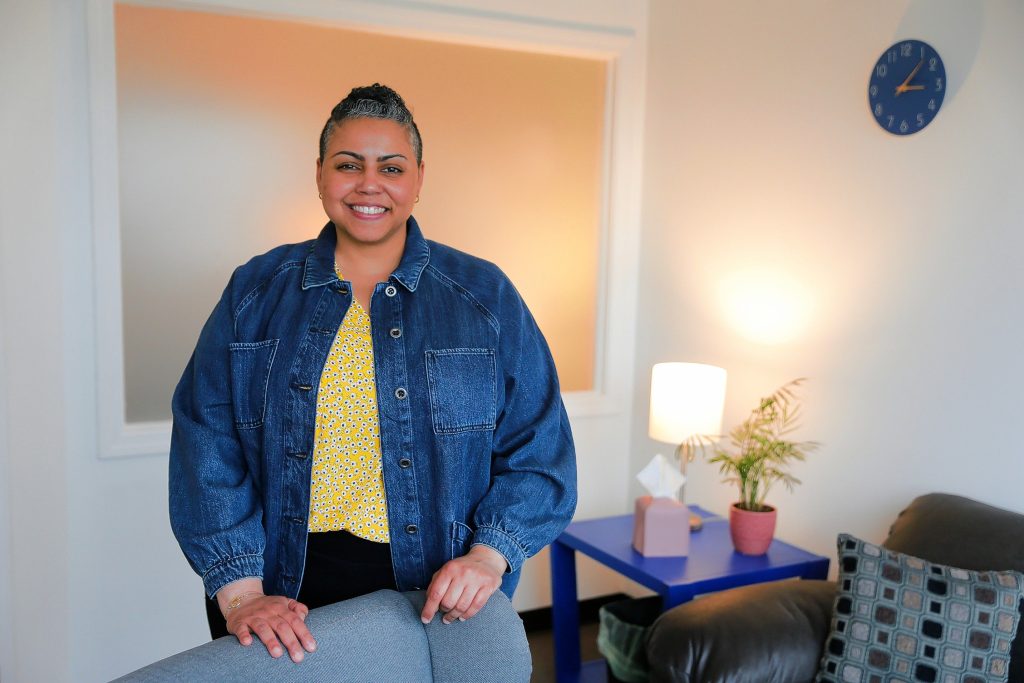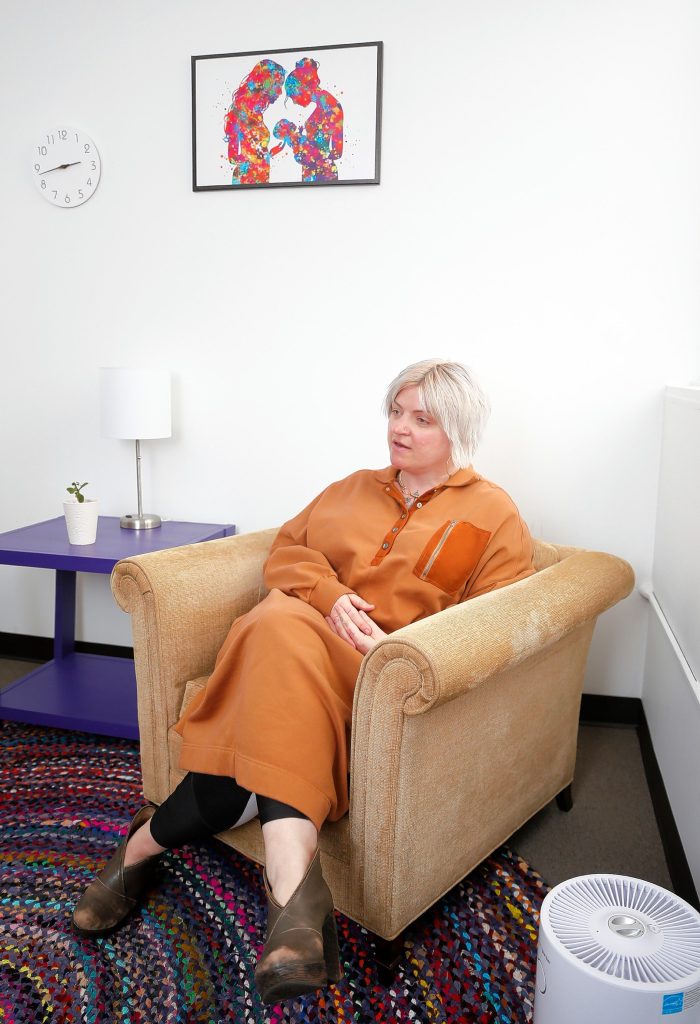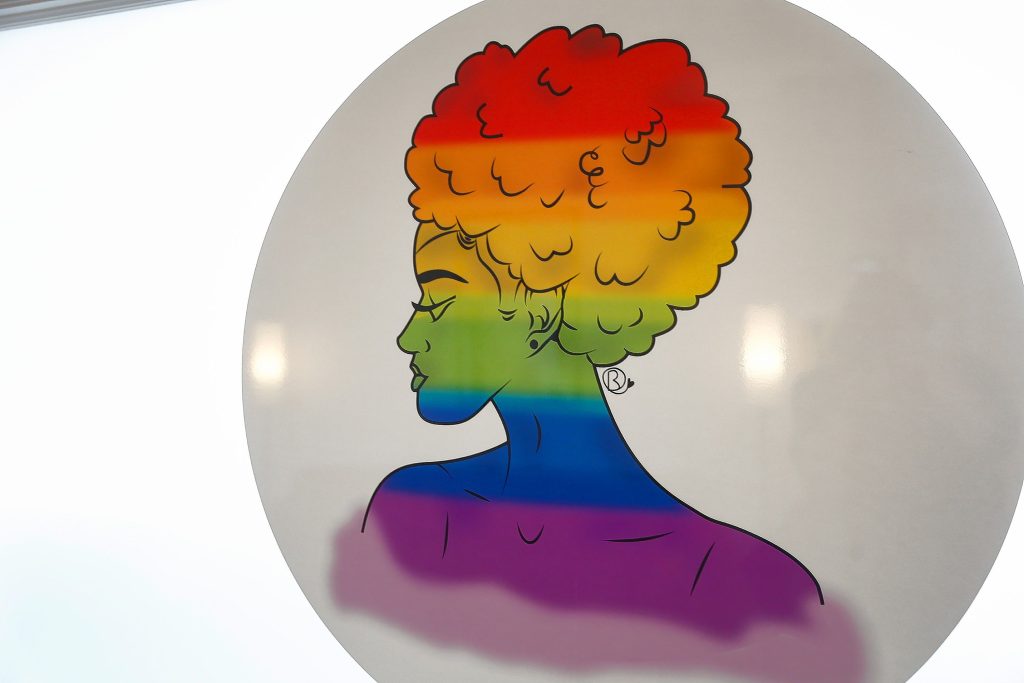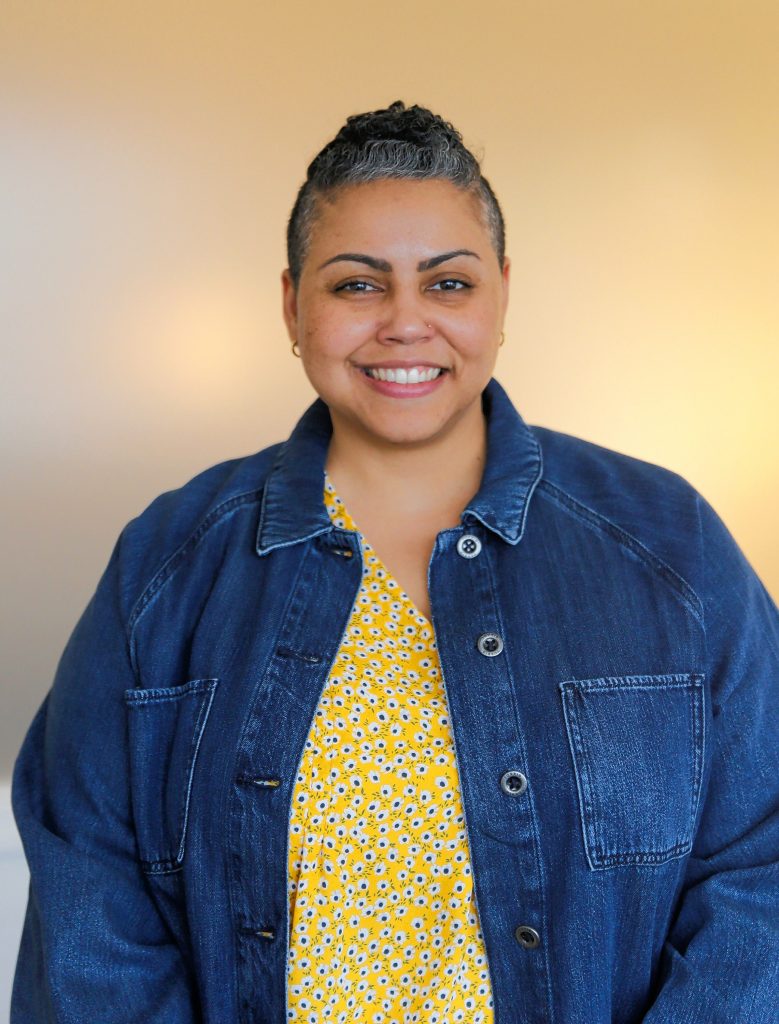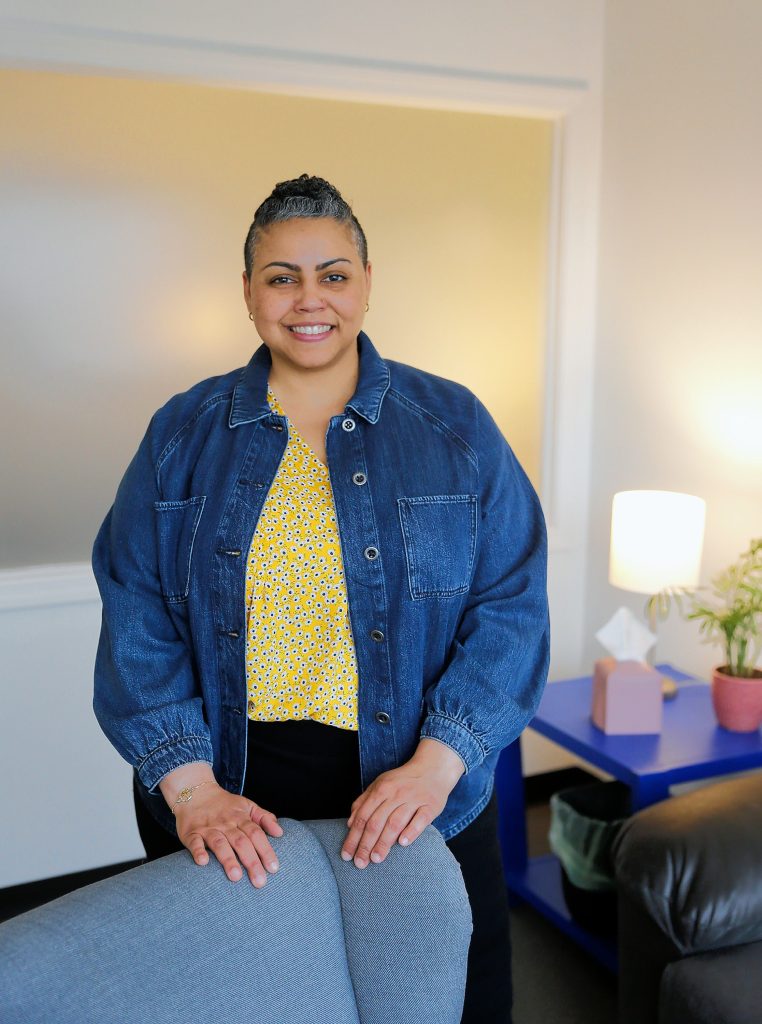Finding mental health support can be tricky, but can be even more so when you can’t find a therapist who looks like you or shares in a similar life experience.
With the lack of clinical representation and cultural competency in the field, Black, Indigenous and People of Color, LGBTQ+, first-generation Americans and immigrant communities have historically been underserved.
The lack of representation and access to services has only intensified as a result of the COVID-19 pandemic and the rising industry expectations of the behavioral health workforce.
But licensed mental health counselor Mayrena Guerrero is actively working to remedy that.
In February 2022, Guerrero, who is an immigrant originally from Santo Domingo, Dominican Republic, established an outpatient mental health services practice called Colorful Resilience. The West Springfield-based office provides couples, individual and family therapy especially for — but not exclusively — those marginalized populations.
“The response from the community has been amazing. We have over 220 clients and we’ve only been open for a year,” she said.
Despite being open for such a short time, the practice is already in the process of expanding to make space for the soon-to-be 18 clinicians.
Guerrero, the founder and CEO of Colorful Resilience, says the key to that success is creating a clinician-focused environment and nurturing those professionals to further that representation to one day go out into the field to open up a private practice of their own.
Unreachable expectations
The expectations of clinicians in the mental health field can be extremely daunting. That fact is something Guerrero knows all too well.
After completing her bachelor’s degree in clinical psychology from Universidad Católica Santo Domingo in 2005, Guerrero moved to the U.S. to attend graduate school. Though she initially had to enter the workforce, she went on to obtain a master’s degree in mental health counseling from Fitchburg State University.
When she took a job at a community mental health clinic, one of the expectations was to juggle a caseload of about 60 clients. She also learned that one of the unwritten standards of the industry was that she would be paid for working 40 hours per week when in reality, her typical work week was upward of 70 hours.
“You’re underpaid, you overwork and you burnout,” she said.
While working in this capacity as a single mom, Guerrero recalled how her adopted child began showing signs of reactive attachment disorder. The condition is common among children who are adopted and often makes them act out. As such, she found herself constantly fielding phone calls and having to be excused from work.
The circumstances, she says, didn’t sit well with her employer at the time and she ended up losing her full-time position with the company.
“I had to accept work per diem and I was stripped of my benefits. And that put me below the poverty line,” she said. “In that moment, I said to myself: ‘girl, this is not gonna work’.”
That hardship propelled Guerrero to secure her own independent license as a mental health counselor and hang up a shingle of her own and start her own private practice. Not only did that decision better fit her needs, but it made financial sense. She soon discovered that she could make three times as much money going solo.
“With all of the learning you have to undergo in this field, nobody teaches you the business of mental health,” she said.
Representation matters
While working in the community mental health clinic, Guerrero was also one of only two people of color working in her office at the time, and the only one who spoke Spanish.
“This meant every time there’s a Spanish speaker walking through the door, they get assigned to me. It doesn’t matter how many clients I have. It doesn’t matter if I’m competent in treating this particular diagnosis. I speak Spanish and therefore, this person needs to be assigned to me,” she said.
When she moved into private practice in 2017, she began providing cognitive behavioral therapy for the treatment of depression and anxiety.
Despite outlining her specialty in the outcome-based approach on Psychology Today, an online directory of therapists and counselors, she noticed that people with similar backgrounds began reaching out to her based on her description of her intersectionalities and her relatability.
Guerrero, who identifies as a queer, Afro-Latinx woman, speaks often about her intersectionalities as a way to normalize conversations about them.
“I talk about it all the time because I think representation matters,” she said. “My caseload was full in no time.”
She saw a particularly large spike in the number of calls she received in May 2020 when George Floyd was killed. Floyd, who was a 46-year-old Black man, was murdered in Minneapolis by 44-year-old Derek Chauvin, a white police officer, during an attempted arrest.
With so many calls, Guerrero began to feel overwhelmed by the demand and her lack of ability to address it or refer people to other clinicians with similar lived experiences, all while trying to take care of herself.
She recognized the need in the field for more diverse clinicians who shared life experiences as individuals who have previously been overshadowed.
“It’s important for clients to have someone who understands or can relate to the struggles of navigating predominantly white and heteronormative spaces,” she said.
Creating a welcoming environment
To create a more diverse practice, Guerrero said she’s been very intentional about hiring clinicians that show diversity in their practice and how they approach mental health. In doing so, Colorful Resilience is able to provide different levels of expertise on different subject matters, including LGBT couples therapy, navigating the gender transition process and substance use.
Besides the staff itself, Guerrero also spoke to the need of creating a physical space that was welcoming.
Before even entering Colorful Resilience’s second-floor space in a renovated former school building on Park Avenue, patrons are immediately greeted with a woven rainbow-colored floor mat. Additional rainbows accent interior decor like planters and artwork.
Each office is decked out with furniture stylized in a living room-like feel, offering clients a space to feel comfortable. Each space also includes a window and two clocks for both the clinician and the client to be mindful of each other’s time.
Throughout the office there are several pieces of art that are meant to provide physical reminders of the clients and clinicians represented at the practice. One such piece of work is a 6-by-9-foot mural created by M Rudder, a Japanese-American, nonbinary, trans and queer artist. The tapestry, composed on a duck cotton canvas with fabric dye and paint, includes all 195 countries in the world drawn without certain borders while still maintaining some discernible and familiar characteristics of the shapes of the country.
Guerrero said she put out a pitch for local artists and selected M Rudder’s because it speaks to the immigrant experience.
“This piece is about water, how the water we touch today is water touched by our ancestors and every single country is represented,” she said. “It’s important for clients to feel like they are in this space.”
Sustainability and self-care
With a firsthand understanding of industry burnout, Guerrero says making clinicians a priority is an essential tool to increasing representation in the mental health field.
For those who have aims to own their own practice one day, Colorful Resilience provides guidance on how to achieve those dreams.
“We want them to go into private practice — if that’s what they want. We literally want to be their last employer,” she said. “After this, you open your own business, you earn those six figures, and at the same time, we’re graduating more representation of these communities into the field, which is highly underrepresented.”
Guerrero likened her clinician-focused philosophy on the industry to that of the airplane mask directive of putting on your mask first before putting on someone else’s mask.
“Clinicians cannot take care of their clients if they are not taking care of themselves,” she said.
To do that, the baseline salary for each full-time employee is $70,000, including the office’s executive assistant. She also discourages clinicians from seeing more than six clients a day.
Guerrero says that some clinicians question limiting the number of clients they see.
“I tell them, ‘You’re gonna get fried.’ We’re preventing burnout here,” she said. “These boundaries are really important.”
It’s so important in fact that a February 2022 study conducted by the Association for Behavioral Healthcare, a statewide nonprofit representing 80 community-based behavioral healthcare providers, determined that professionals in the field are leaving in Massachusetts faster than they can be replaced. The survey showed that for every 10 master’s level clinicians hired in 2021, approximately 13 clinicians at the same level left their positions.
In addition to increased rate of pay and reduced workload, clinicians at Colorful Resilience decide where they want to work — whether it’s at home or in-person. The practice offers in-person consultations for clients in western Massachusetts and telehealth services for those throughout the state.
Recently, Guerrero said she’s been called “radical” by some questioning the practice’s model, but she just calls it common sense.
As a first-year business, she’s currently in the red, but estimates that she’ll be out of debt and turning a profit by January. Through her research she’s found that she’s on track to achieve 12% profitability and is ready to challenge anyone who thinks she can’t do it.
“I’m here to prove that you can treat people well … and you can be profitable. Just give me two years,” she said. “This is the way things should be done and I would welcome anybody to challenge that.”

